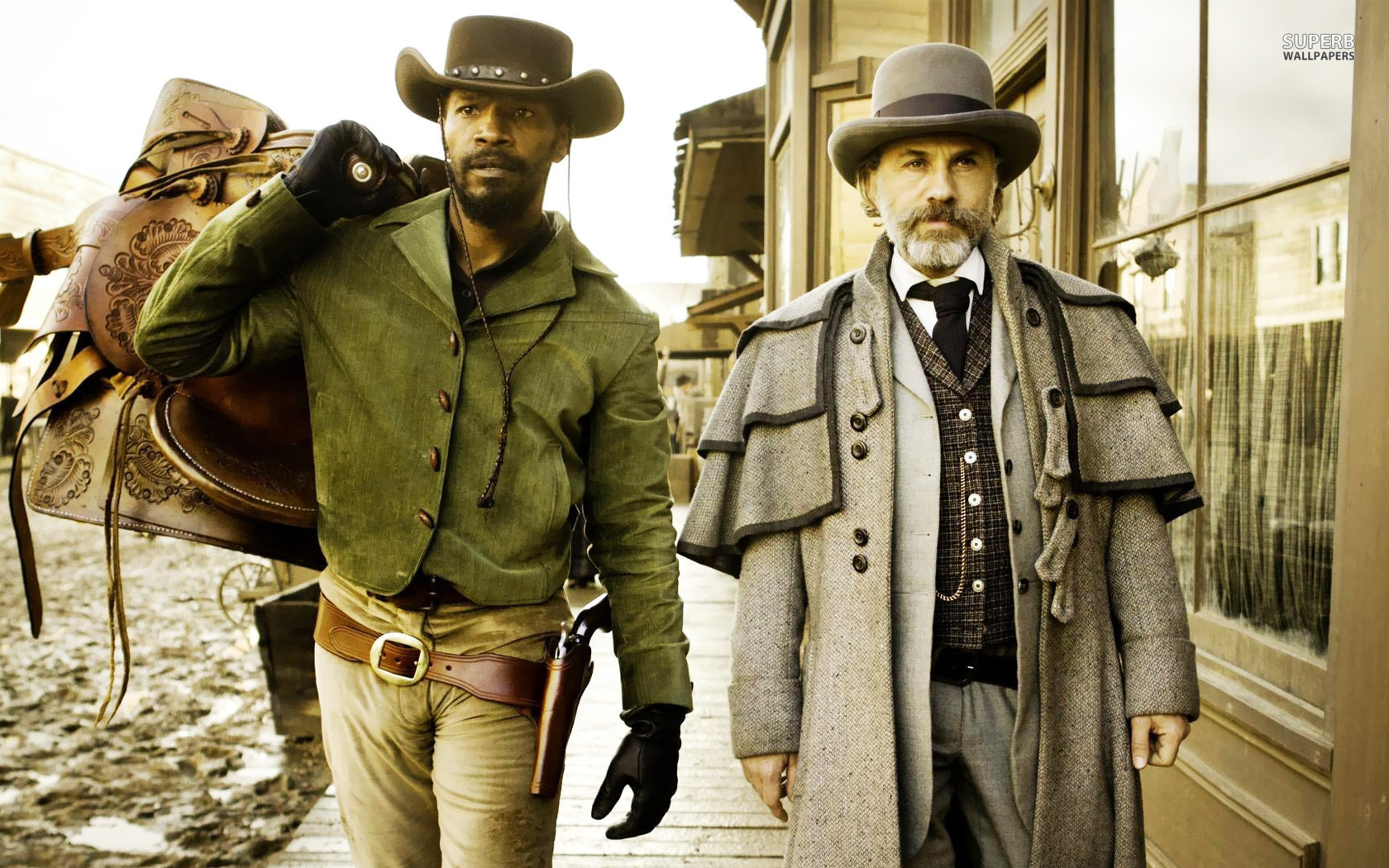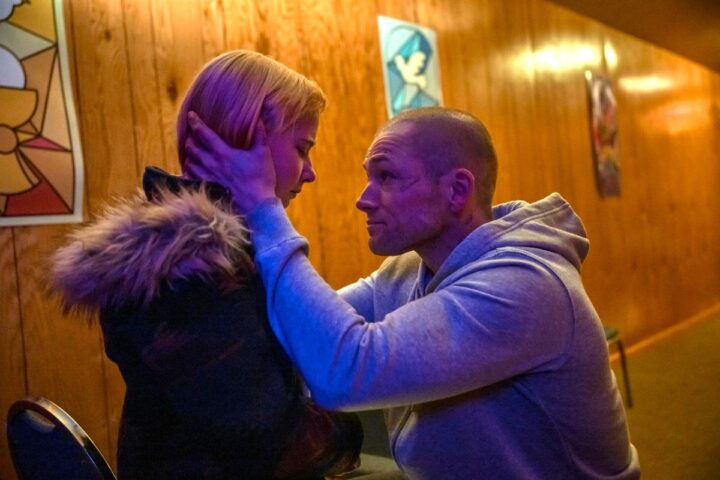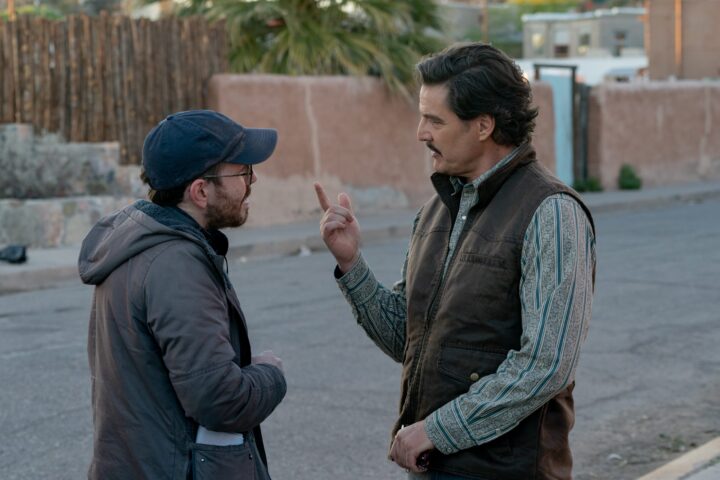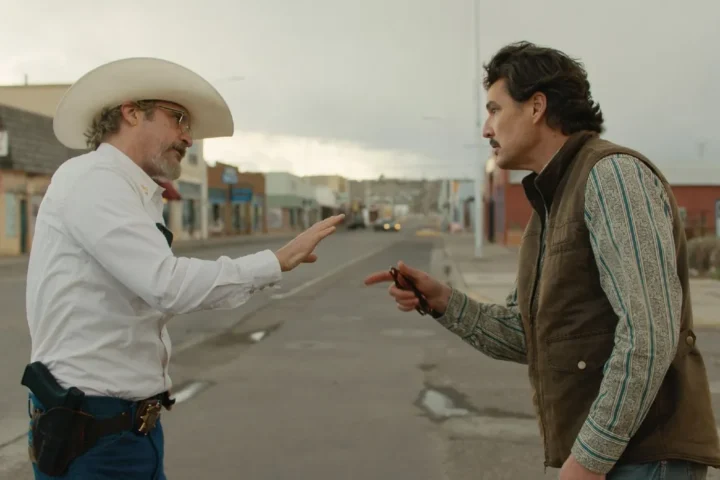Quentin Tarantino’s Django Unchained is an explosion of violence and humor and delicious performances, a visceral and upsetting portrait of slavery that borders on blaxploitation at times, all wrapped up in a spaghetti western. It’s a movie so entertaining for each of its 164 minutes you might not want it to end, a dark and violent revenge thriller that is the filmmaker’s best looking and richest movie, marked growth for the cinephile director who famously started his career behind the counter of a video store (albeit one that stocked tons of exploitation and b-movies) and now incorporates the genres and tropes of gone by eras into an unlikely cohesion that somehow becomes almost art.
The gifted Austrian actor Christoph Waltz (who won the Oscar for Tarantino’s Inglorious Basterds) is Dr. King Schultz, a dentist turned bounty hunter who first frees then hires runaway slave Django (Jamie Foxx) as his apprentice. The pair traverse the old South racking up a small fortune in claims, the sight of which—a Black man riding horseback as an equal to his white “business partner”—inflames just about everyone they come into contact with. Their real agenda? To rescue one Broomhilda von Shaft (Kerry Washington), Django’s slave wife, now the property of a dandily flamboyant Mississippi plantation owner, Calvin Candie (an incendiary Leonardo DiCaprio), proprietor of Candieland, a hotbed slave haven run by a salty, Uncle Tom-type named Stephen (Samuel Jackson, blowing the roof off), the head house slave who unravels the secret plot and brings on the bloodshed.
Along the way we meet a wily Don Johnson as Big Daddy, a Colonel Sanders-esque plantation owner and leader of the local keystone KKK chapter (which also includes Jonah Hill), who in the film’s most uproariously written sequence lodge complaints about the misplaced eyeholes on their hoods, and Bruce Dern in a cameo as Django’s evil former master. Breaking Away’s Dennis Christopher turns up in a key role as Candie’s sycophantic attorney (Tarantino surely loved his iconic 1981 Fade to Black genre performance) and the original Django himself, Franco Nero, turns up in a cameo.
The action sequences are undeniably gruesome and intensely cinematic. I can’t recall single shot in Inglorious Basterds, but courtesy of the great DP Ralph Richardsons, Django Unchained is meticulously composed and loaded with gorgeously composed eyefulls, such as when a Django, clad in a navy blue velvet suit, dispatches a trio of white trash, Bible-beating brothers, moving left through the frame while a young girl on a swing moves right, producing a fantastically disorienting effect. Then there’s the ivory horse stained blood red, galloping in the moonlight and Django, bareback across the country side, shotgun over his shoulder.
Being a Tarantino picture, Django Unchained is rigorously controlled technically, containing the filmmaker’s signature mix of film stocks, anachronistic musical selections and sudden, shocking violence. Current controversy about guns and bloodshed in movies aside, Tarantino doesn’t pull punches when depicting the horrors of the slave experience—in brutal close-up, we see slaves whipped, a face branded with a molten poker, another poor soul torn limb-for-limb by rabid dogs and perhaps most horrifically, slaves forced to engage in “Mandingo” death brawls while blood, tissue, bones and eyeballs are broken and gouged in tidy parlor rooms for the entertainment of wealthy white patrons.
This is tough stuff for a Hollywood movie that wants to entertain, but it somehow works. Real exploitation or loving nods to 70s movie exploitation? Tarantino does not make entertainment of these troubling images, instead giving them appropriate weight. But he is not interested in social discourse. At the end of the day, he has fashioned a retro-styled revenge movie loaded with juicy performances (particularly DiCaprio), dialogue and style. He’s one of the few American filmmakers working today with a personal stamp on commercial movies—and his are unmissable.
4 stars.



